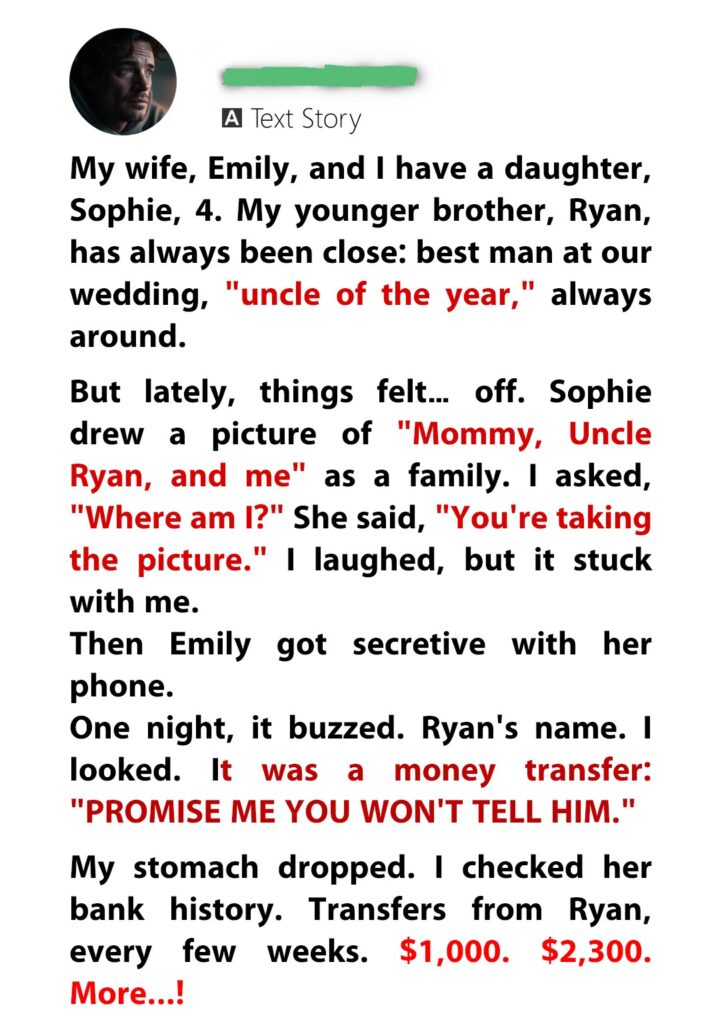I thought I had the perfect life—Emily, my wife of five years, our daughter Sophie, and my younger brother Ryan, who was practically part of our household. Ryan was always around: fixing things, babysitting, laughing with Emily. We were close. After our dad left, we leaned on each other. I trusted him with everything.
But then, things started to feel… off.
Sophie drew pictures of “Mommy and Uncle Ryan” as a family. Emily seemed distant. And one day, while checking our joint account, I noticed regular transfers—small, consistent amounts—from Ryan to Emily. My stomach dropped.
I confronted Emily. She froze. Then she told me the truth.
Ryan had been secretly sending her money—not out of betrayal, but out of guilt. Years ago, before Emily and I got serious, Ryan had a one-night fling with her. She got pregnant. But she never told me. She miscarried early, and they buried the secret.
When Emily and I got married, Ryan swore to support her quietly, to make up for the past. The money was his way of atonement. Emily never spent it. She kept it untouched, waiting for the right moment to tell me.
I felt like the ground had vanished beneath me. My brother. My wife. A child I never knew existed. The betrayal wasn’t in the act—it was in the silence.
But as the shock settled, I saw something else: remorse. Ryan’s loyalty hadn’t wavered. Emily’s love hadn’t faltered. They had both carried this burden alone, trying to protect me.

It took time, therapy, and tears. But we’re healing. Not perfectly. Not easily. But honestly.
Sometimes, the deepest wounds come from the people closest to us. And sometimes, forgiveness isn’t about forgetting—it’s about choosing to move forward, together.
